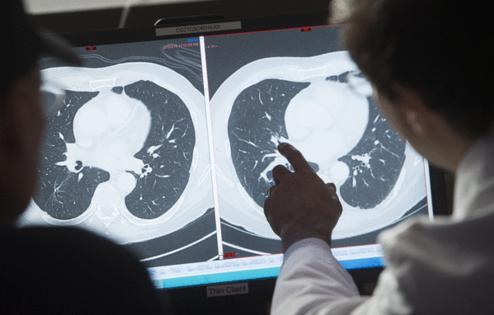Commentary: What will AI automation of health care mean for patients?
Published in Op Eds
Artificial intelligence is upon us, and just as other historical breakthrough technologies have proved, it is not a matter of how it will accommodate us but how we must accommodate it. Education, finance, law, transportation and energy are all sectors that are being dramatically transformed by AI, and medicine will be no exception. What will the AI automation of health care mean for patients?
With more diagnostic power available to patients than ever before, they will have more agency than they could have imagined. The AI transformation of medicine likely will sharpen diagnoses, streamline treatments and improve patient outcomes. Convenience will be the coin of the realm; many doctors’ appointments and emergency room visits will become unnecessary. The long era of sitting quietly while the doctor pronounces what ails us and what to do about it is ending.
Unfortunately, the future may not be as promising for physicians. The machines will soon out-doctor the doctors: AI will diagnose better and more quickly, and robotics will perform procedures more efficiently (the next generation of robotic surgery will need minimal human supervision). Physicians, especially the less experienced, are likely to overrely on machine AI in the pursuit of efficiency and speed. Doctors could become drone workers to the queen bee of AI. If that happens, what point is there in training new physicians? It is a notoriously cost-inefficient process.
But it doesn’t mean physicians can be completely eliminated, if for no other reason than AI “hallucinations” — the misleading results that machine learning occasionally generates. The diagnosis or treatment that AI suggests could be completely wrong, and the machine will not realize its error. Amr Awadallah, chief executive of an AI startup, told The New York Times, “Despite our best efforts, (AI systems) will always hallucinate. That will never go away.” Infallible machines turn out to be fallible. So there will have to be a physician somewhere in the equation to monitor the process.
But the biggest risk of AI in medicine will be cybersecurity. Of course, you will be assured that your information is secure. But it won’t be, because there is no such thing as total security. Electronic medical records were once touted as secure, but whole hospital systems have been taken down and held for ransom by malefactors. Given the national interconnection of medical databases, an AI agent could in theory take down the medical systems of the entire country.
Between hallucinations and hacking, there will have to be a role for physicians. The brilliant family physician and medical blogger Dr. Buzz Hollander once described the importance of the physician in the era of AI, “The internet has been a godsend for medicine; it has democratized medical knowledge away from the medical center libraries and academic journals and put it in everyone’s hands, at a faster pace than ever before. However, there is no device capable of reasoning through complex medical problems less prone to hacking, malware and corruption than the brain of a physician. No large scale attacks can be made on this form of intelligence.”
The government, insurers, the health care industry, Big Science and Big Pharma will welcome, and eventually demand, that medicine be turned over to AI. The speed, efficiency and, of course, the profits will be too hard to pass up, risks be damned. Everyone in charge of health care will come to the same conclusion — the tremendous upside of having AI in charge of health care is worth the foreseeable risks. But, of course, not all risks are foreseeable, and those that are will be borne primarily by patients.
The AI revolution will be of immense benefit, but at the same time, it also will demand that all of us — patients and physicians — be aware of its shortcomings and potential pitfalls. Patients are the nexus between responsible health care and a dangerous technologic tsunami. They must make their desires known, the sooner the better, especially if they want the human contact that physicians, nurses and therapists provide. High tech should be tempered with high touch.
The author Avi Jorisch, who wrote a treatise on technology, “Thou Shalt Innovate,” observed, “Like every true revolution, it will begin within us — with the ancient, ever-new realization that technology is a mirror. What it reflects depends entirely on who we choose to be.”
____
Dr. Cory Franklin is a retired intensive care physician and the author of“The COVID Diaries 2020-2024: Anatomy of a Contagion as It Happened.”
___
©2025 Chicago Tribune. Visit at chicagotribune.com. Distributed by Tribune Content Agency, LLC.
























































Comments